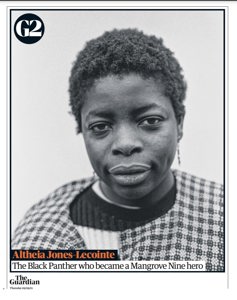
The Guardian
The Guardian
Guardian journalism is meaningful, impactful and committed to representing diverse voices, and we have hired community affairs reporters to ensure these voices are heard. Standout editorial projects include Black Lives - interviews (all by writers of colour) with the people at the forefront of social change and civil rights, from the 1960s Bristol bus boycott to the first UK Pride march. For our Made in Britain video series Guardian journalists worked with organisations in eight marginalised UK towns to train and mentor people to tell their community story and the challenges they face. Columnists including Frances Ryan, Nesrine Malik and Aditya Chakrabortty focus on issues including disability, deprivation and race inequality. We also doubled down on our long commitment to women’s sport, from Women’s Football Weekly to the brilliant sportswriting of Suzanne Wrack, Jonathan Liew and others. We bring our journalism to the broadest, most diverse audiences: from Instagram and TikTok to videos including the Bafta-winning The Black Cop, plus ambitious interactive storytelling, record audiences for our daily podcast Today in Focus, and sellout virtual Guardian Live events. We appointed a senior editor for diversity and development dedicated to improving the diversity of the Guardian’s editorial staff and coverage. The new role, part of our Race Action Plan, proactively drives the Guardian’s diversity and inclusion strategy within editorial, working closely with the newsroom. We are addressing inequality in pay. We published our second ethnicity pay gap report, with the goal to achieve 20% ethnic minority representation throughout the organisation and across our top two pay quartiles within the next five years. We remain committed to developing new and diverse talent across the Guardian. Each year the Scott Trust Bursary assists students facing financial difficulty in attaining journalism qualifications. This year’s aspiring journalists will receive payment for course tuition fees, a living allowance and several weeks’ work experience alongside a Guardian journalist mentor. On graduating, the students receive Guardian newsroom contracts. Many of the scheme’s alumni are now senior staff Guardian journalists, including Homa Khaleeli, Randeep Ramesh and Lanre Bakare. The Guardian’s Positive Action Scheme, established for students from black, Asian and minority ethnic backgrounds and people with disabilities, marked its 20th year with 24 two- and three-week editorial work experience placements, and we worked with the Sarah Hughes trust set up in memory of our journalist to provide accommodation grants for those who needed them. Our partnership with Creative Access provided 12 eight-week commercial internships – also aimed at BAME students or people from lower socio-economic groups. The Guardian Foundation continues to promote media inclusion, providing a host of educational opportunities for traditionally underrepresented groups and communities. Throughout 2021/22, over 50,000 resources for primary-aged children were downloaded, and over 7,500 people took part in workshops and activities for primary and secondary schools (for more, see their impact report).